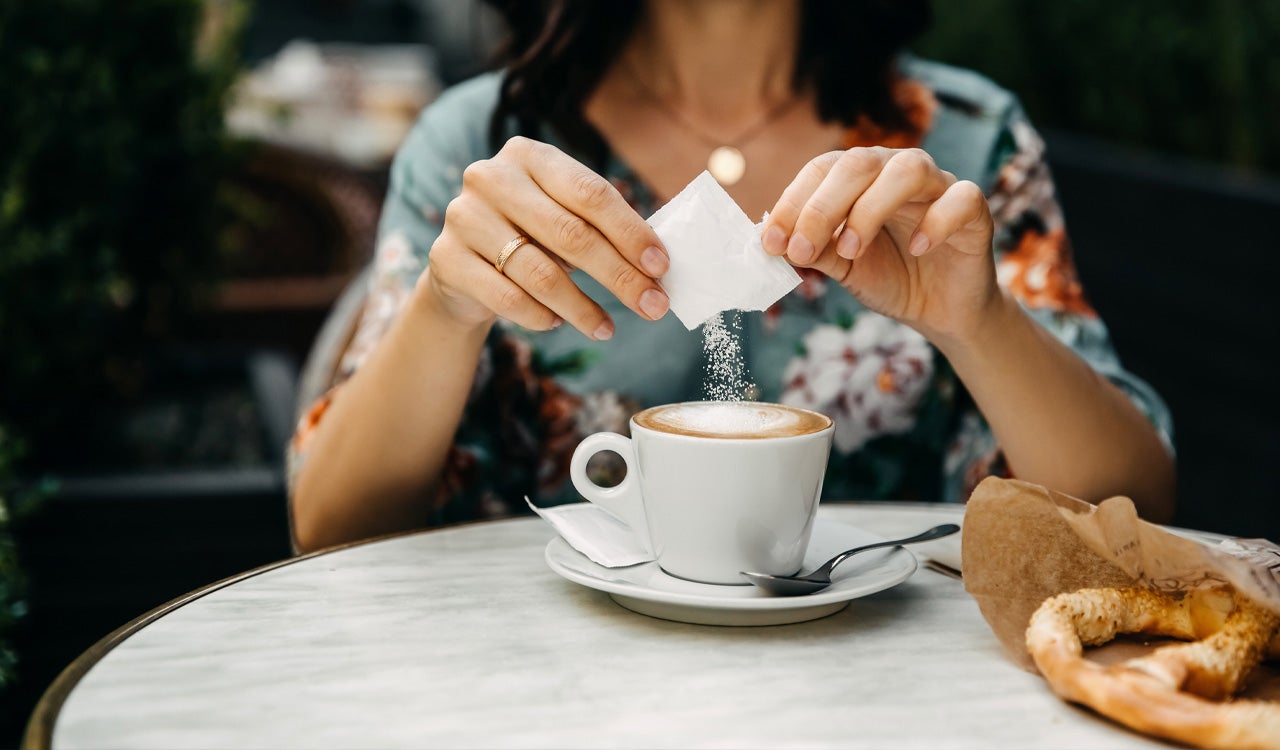Do Caffeine and Sugar Cause Anxiety?
September 13, 2022
Caffeine and sugar are two of the most commonly consumed substances in the world. About 80 percent of U.S. adults consume caffeine every day. On top of that, the average U.S. adult consumes 17 teaspoons of added sugar daily.
Most of us, at one point or another, have consumed too much caffeine or sugar and experienced anxiety-like symptoms, such as the jitters, increased heart rate, or excessive energy. Due to these side effects, you might be wondering if caffeine and sugar can cause anxiety.

The short answer is: no—caffeine and sugar won’t cause you to develop an anxiety disorder. This is supported by the fact that about 19 percent of U.S. adults have had an anxiety disorder in the past year. This is undoubtedly a large percentage, but if caffeine and sugar directly caused anxiety disorders, that percentage would be much higher.
That being said, there’s a caveat. Consuming high doses of caffeine or sugar can induce temporary anxiety-like symptoms or make already-existing anxiety symptoms worse. Let’s break down this connection.
Caffeine and Anxiety
Caffeine is a natural stimulant found in various plants. It works by stimulating the brain and central nervous system, helping you stay alert and preventing the onset of tiredness.
The most well-known and popular source of caffeine is coffee. According to recent reports, 66 percent of Americans drink coffee every day. That’s more than any other beverage, including tap water! An eight-ounce cup of brewed coffee contains about 95 mg of caffeine.
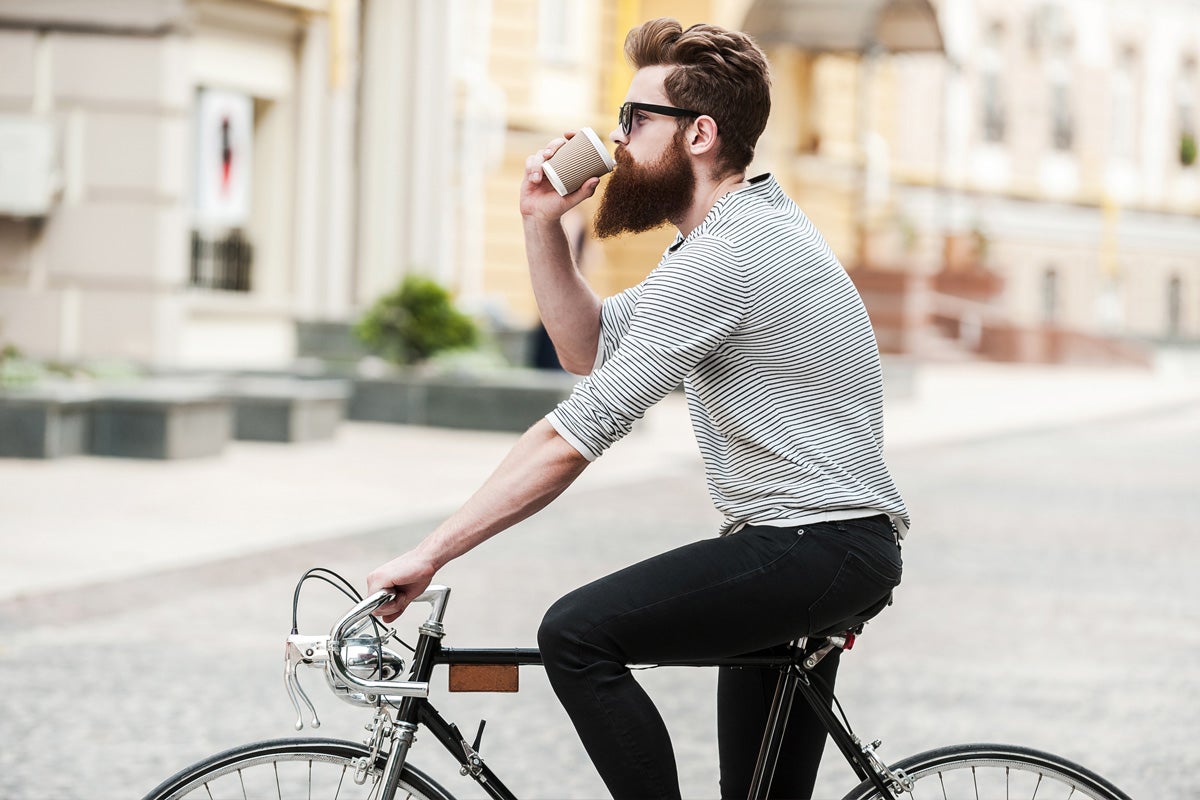
Other sources of caffeine include:
- Black tea: 47 mg caffeine per eight-ounce cup
- Green tea: 28 mg caffeine per eight-ounce cup
- Soda: 40-55 mg caffeine per 12-ounce can
- Chocolate (cacao): 24 mg per one ounce of dark chocolate (milk chocolate contains one-quarter of that amount)
- Energy drinks: 170 mg caffeine per 16-ounce can
- Supplements: Caffeine supplements contain about 200 mg per tablet
Consuming up to 400 mg of caffeine daily (about four cups of coffee) has not been associated with adverse side effects in healthy adults. In fact, moderate caffeine intake is linked to positive benefits, including less depressive symptoms and fewer cognitive errors.

When you start consuming more than 400 mg of caffeine per day, however, you open the door to symptoms that mimic those of anxiety, including:
- Nervousness
- Restlessness
- Insomnia
- Fast heart rate
- Gastrointestinal problems
- Nausea
- Rapid heartbeat
- Muscle tremors
- Frequent urination
- Irritability
- Headaches
Additionally, research shows that those with already-exisiting anxiety disorders are more likely to experience increased anxiety symptoms, such as panic attacks, when they consume too much caffeine.
The good news is that these uncomfortable, caffeine-induced side effects should resolve when you scale your caffeine consumption back to moderate levels.
Sugar and Anxiety
As mentioned earlier, the average American consumes loads of added sugar daily (about 17 teaspoons). That’s over double the amount recommended by the American Heart Association—no more than nine teaspoons (36 grams) for men and six teaspoons (24 grams) for women).
To be clear, when we’re talking about sugar, we’re not talking about sugars that naturally occur in healthy foods like fruits, vegetables, and whole grains. Rather, we’re talking about refined sugar that’s added to foods.
Let’s take a look at some common high-sugar foods and their approximate sugar content (4 grams of sugar = 1 tsp sugar):
- Chocolate candy bar: 30 grams
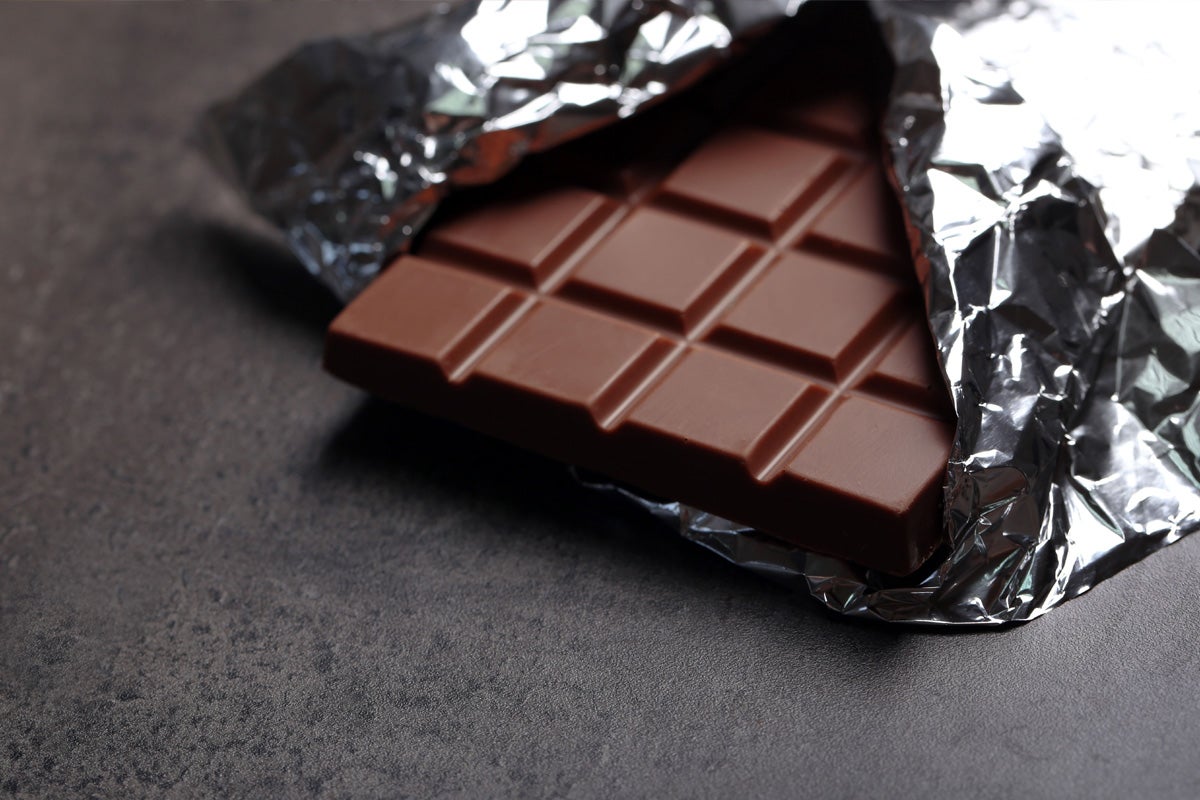
- One 12-ounce can of soda: 30-50 grams
- One 12-ounce sports drink: 20 grams
- One 8-ounce cup of apple juice: 24 grams
- One 16-ounce energy drink: 54 grams
- Two tablespoons of BBQ sauce: 9 grams
- Two tablespoons of ketchup: 8 grams
- One cup chocolate milk: 12 grams
- ½ cup ice cream: 14 grams
- Large flavored coffee drink: 45+ grams
- One jelly donut: 18 grams
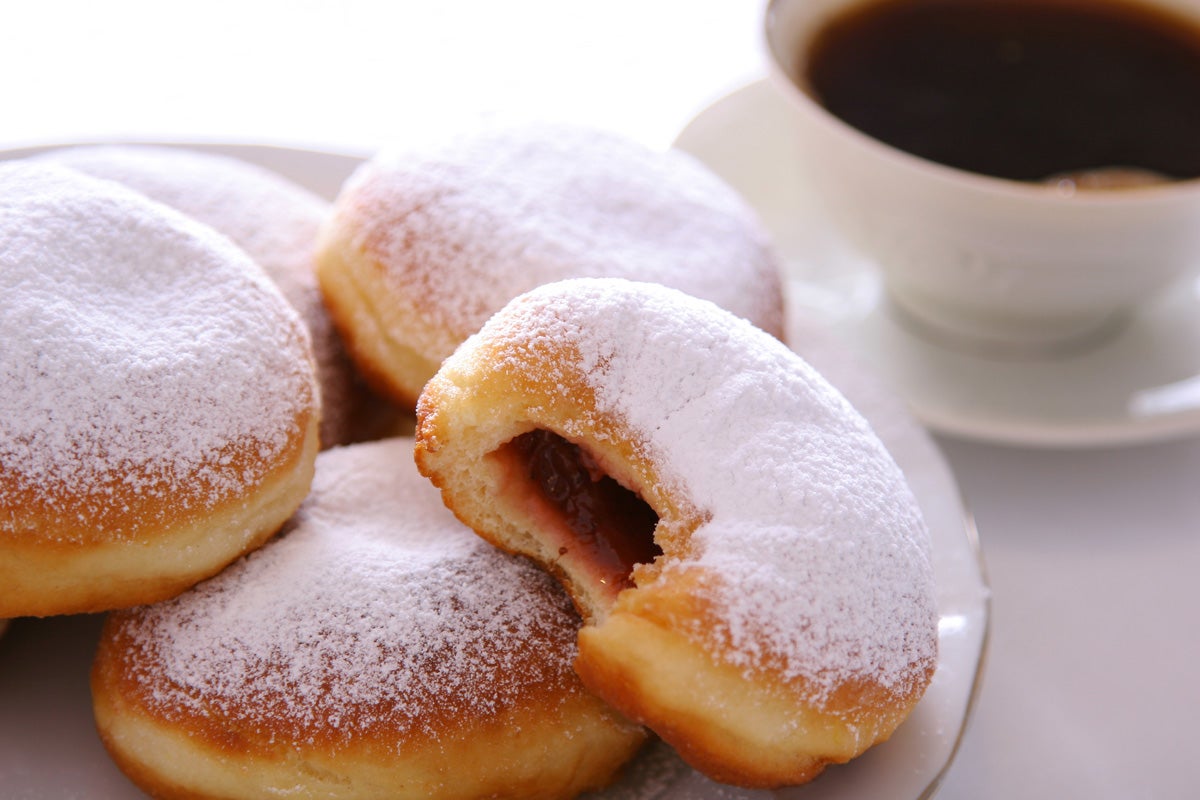
- One cup canned baked beans: 20 grams
- 16-ounce pre-made smoothie: 50+ grams
While the occasional sweet treat won’t hurt you, studies have found links between diets high in added sugar and poorer mental health—not to mention diabetes.

The problem with sugar is that it causes blood sugar spikes and drops, which directly affect mood. When you eat something sugary, you experience a burst of energy as the body rapidly absorbs these simple carbohydrates.
Your body then quickly burns these carbohydrates as fuel, causing you to experience a crash as your blood sugar level plummets. This quick spike and drop can cause you to feel uneasy and jittery, and can even mimic a panic attack.
While anyone is vulnerable to experiencing sugar-induced symptoms, those with an already-existing anxiety disorder are more likely to experience symptoms due to high sugar intake. This is because those with anxiety have more sensitive central nervous systems and are more prone to input from various stimuli, such as loud noises, caffeine, and sugar.
As with caffeine, the plus side is that any worsening of your anxiety symptoms (or appearance of anxiety-like symptoms) will likely dissipate when you get your sugar intake in check.
How to Reduce Anxiety without Eliminating Caffeine and Sugar
If you’re reading this thinking all joy is lost—don’t worry. You don’t have to completely cut out your beloved vanilla lattes and chocolate chip cookies to avoid spikes in anxiety.
Here are our top tips for reducing the incidence of anxiety symptoms from caffeine and sugar, and managing anxiety in general:
Journal
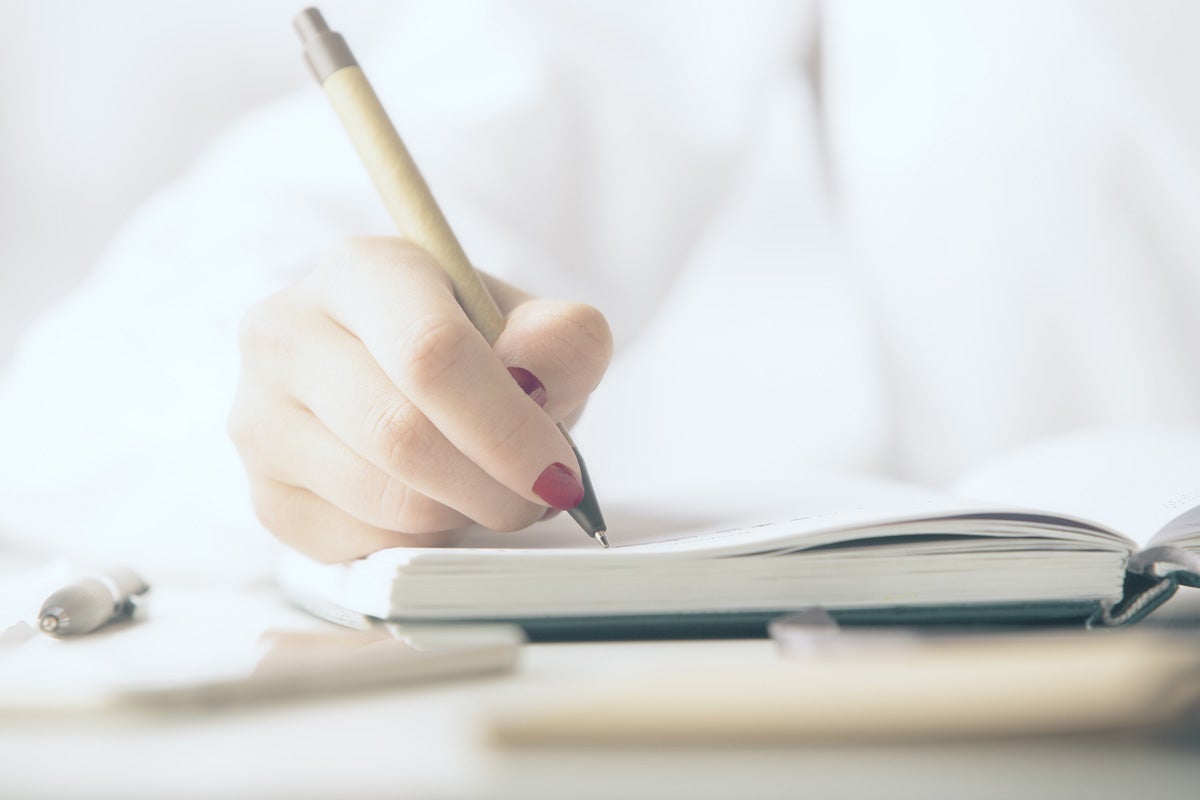
Putting pen to paper and writing down your thoughts and feelings has been shown to be incredibly effective for reducing stress and anxiety.
Start by pulling out a blank sheet of paper and a pen and setting a timer for 20 minutes. Write whatever comes to your mind—without judgment, editing, or censoring. Anything goes!
It can also help to keep track of your anxiety symptoms in your journal. Write down when you experience peaks in your anxiety and what you were doing leading up to that moment (i.e., drinking an energy drink). When you see your symptoms laid out on paper, you can better determine what might be triggering your anxiety symptoms and make changes.
Moderate Your Caffeine and Sugar Intake
Most people only experience side effects from caffeine and sugar when they consume too much. To reduce the risk of adverse symptoms, consume no more than 400 mg of caffeine daily (about four cups of coffee). Some people may be more sensitive to the effects of caffeine, so if you notice anxiety arise from your caffeine intake, scale it back until no uncomfortable symptoms occur.
Additionally, if you notice your anxiety is worse at certain times of the day, avoid caffeine during these times.
As for sugar, try to limit added sugar as much as possible. Center your diet around unrefined, whole foods, including fruits, vegetables, whole grains, legumes, lean animal protein, nuts, and seeds. As with any significant change, always consult with a healthcare practitioner before making any changes to your diet.
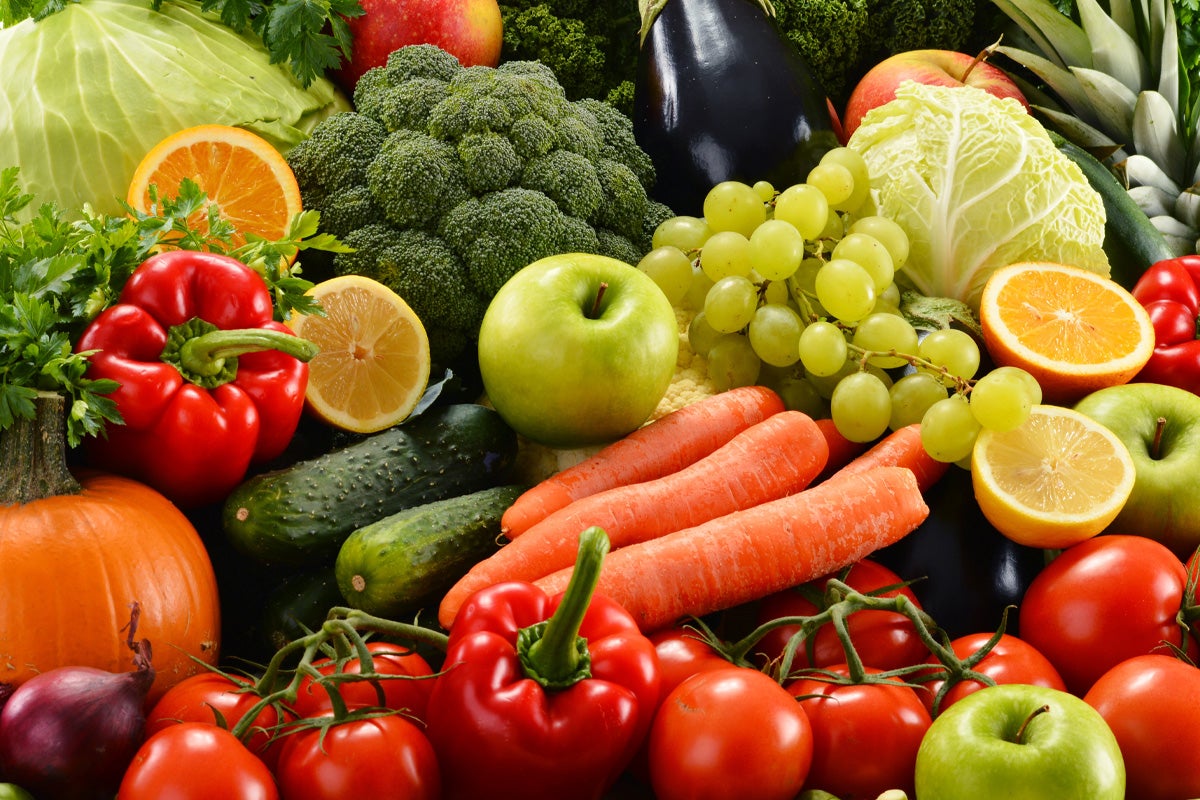
Some helpful tips for reducing or eliminating added sugar include:
- Swap out sugar: Use low- and no-calorie sweeteners in your coffee, tea, and baking instead of sugar. Good options include Splenda Monk Fruit Sweetener, Splenda Stevia Sweetener, Splenda Magic Baker Sweetener, and Splenda Original Sweetener (Splenda Sucralose).
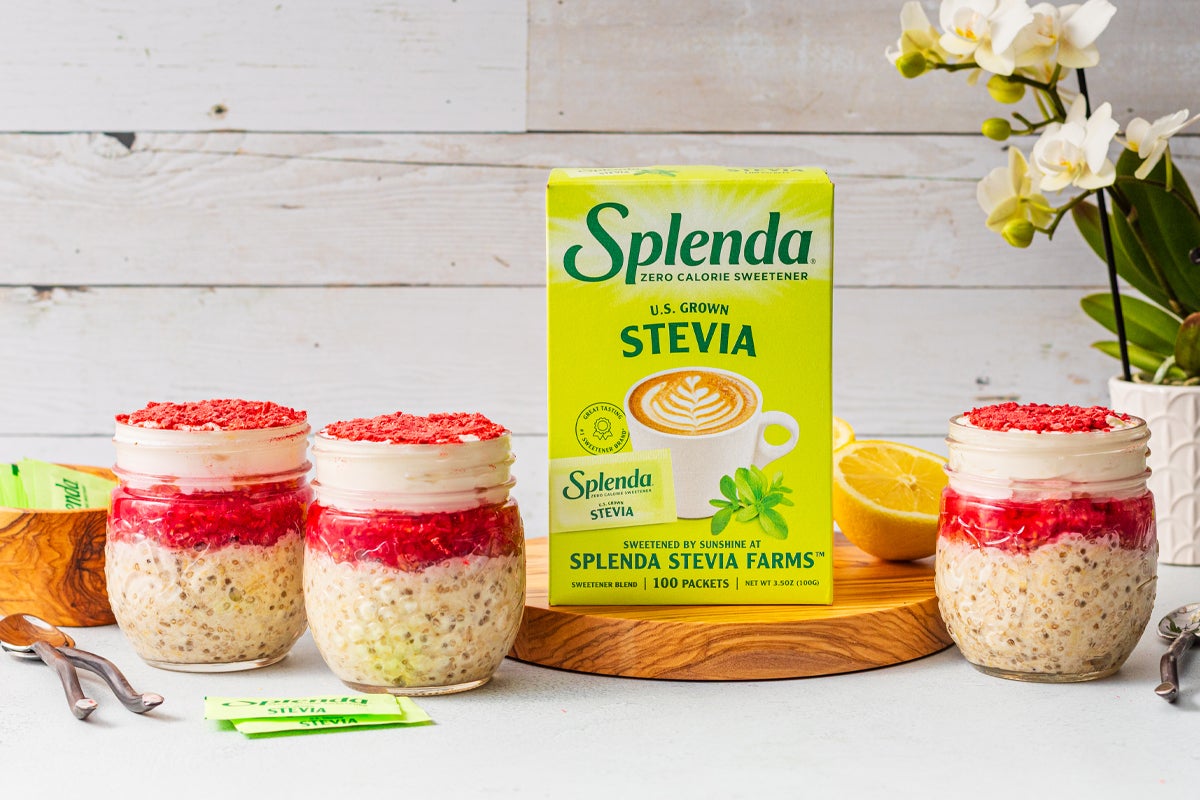
- Opt for fresh or frozen fruit: Consume whole fruit instead of fruit juice.
- Use fruit as a topper: Top your oatmeal and cereal with fresh fruit instead of sugar.
- Cut the serving back: When baking, cut the sugar in half by using a sugar blend like Splenda Sugar Blend. Chances are you won’t notice the difference!
- Pair with fiber and fat: If (when) you eat higher sugar foods, pair them with foods high in fiber and healthy fats. This will slow the absorption of the sugar into the bloodstream, preventing it from spiking your blood sugar as much.
Take a Holistic Approach

While changing one’s diet is a big part of fighting back against anxiety, truly managing your symptoms requires a holistic approach. It’s essential to take into account getting enough exercise, getting enough sleep, and making time to relax and do things you enjoy.
Everyone experiences anxiety differently and has different triggers, so tune into what you need to feel at ease. When you care for yourself on all levels, your body and mind will feel safe enough to let go, relax, and relish the moment.
Written by Katie Koschalk, a health and wellness writer, certified holistic nutritionist, and certified personal trainer based in California.

